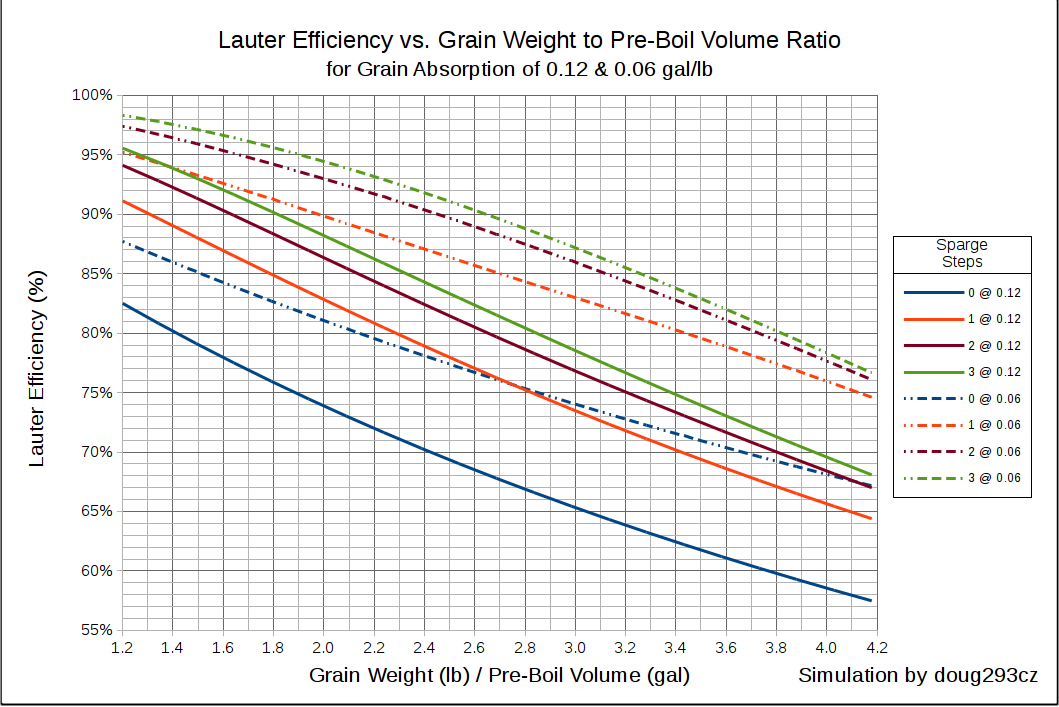Curious about you basket brewers....
do you full volume mash, pull the basket and only let it gravity drain to your pre-boil volume?
or do you mash less than full water volume, gravity drain, and then sparge to volume?
Or full volume mash plus a sparge, and then have to boil down to reach pre-boil volume or target SG?
My thoughts are there is always retained water no matter what. gravity only drain means residual wort retained in the grain bed.
But if you used a little less water to mash, then a sparge with water only would rinse much of that residual wort down and out. Displacing the residual wort in the grain with mostly water. You would still reach your target pre-boil volume but with a higher SG. Or could use less grain and get the same numbers.
Would holding back a gallon affect conversion efficiency? If you can reach 100% conversion with 80% mash volume then you can lauter more sugar into the kettle.
The idea is to get maximum converted sugars of the grain and into the kettle with the least water used. So the last of the runnings are close to 1.000 and only needed for target recipe volume.
I recently did my RIS recipe with less mash and then sparge to volume I used 90% of my normal grain bill and hit pretty much identical numbers.
I'm trying to figure out how to basically have close to zero residual sugar in the grain without having extra kettle volume thin wort to boil down.
do you full volume mash, pull the basket and only let it gravity drain to your pre-boil volume?
or do you mash less than full water volume, gravity drain, and then sparge to volume?
Or full volume mash plus a sparge, and then have to boil down to reach pre-boil volume or target SG?
My thoughts are there is always retained water no matter what. gravity only drain means residual wort retained in the grain bed.
But if you used a little less water to mash, then a sparge with water only would rinse much of that residual wort down and out. Displacing the residual wort in the grain with mostly water. You would still reach your target pre-boil volume but with a higher SG. Or could use less grain and get the same numbers.
Would holding back a gallon affect conversion efficiency? If you can reach 100% conversion with 80% mash volume then you can lauter more sugar into the kettle.
The idea is to get maximum converted sugars of the grain and into the kettle with the least water used. So the last of the runnings are close to 1.000 and only needed for target recipe volume.
I recently did my RIS recipe with less mash and then sparge to volume I used 90% of my normal grain bill and hit pretty much identical numbers.
I'm trying to figure out how to basically have close to zero residual sugar in the grain without having extra kettle volume thin wort to boil down.













































![Craft A Brew - Safale S-04 Dry Yeast - Fermentis - English Ale Dry Yeast - For English and American Ales and Hard Apple Ciders - Ingredients for Home Brewing - Beer Making Supplies - [1 Pack]](https://m.media-amazon.com/images/I/41fVGNh6JfL._SL500_.jpg)













